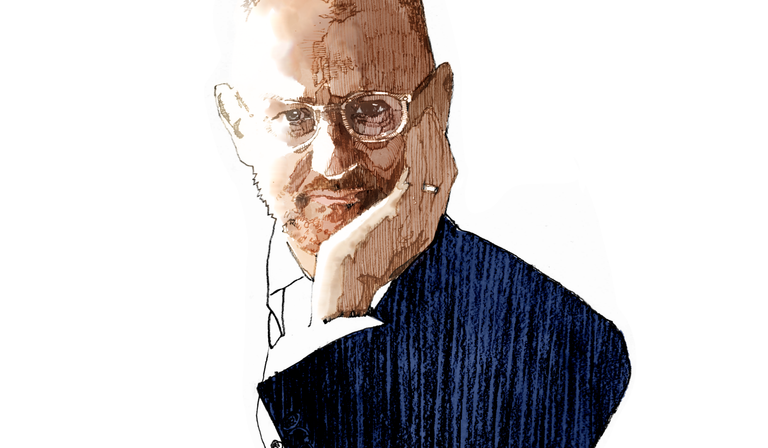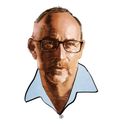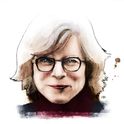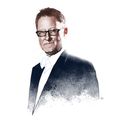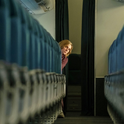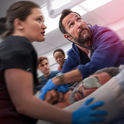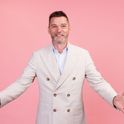What is the first news event you can recall?
I think I was woken up to watch the moon landings. I was three. But it might be a more general memory of watching blurry moon stuff—the space race was an exciting time! I have very distinct memories of the three-day week. Especially the power cuts, of course. But I was very interested in politics. Well, the theatre of it, anyway. I used to draw pictures of Ted Heath and Harold Wilson at school.
What is the biggest problem?
Lack of empathy. It’s an obvious thing to say, but we live in an age where sociopathy has become a tool of government.
If you could spend a day in one city or place at one moment in history, what would that be?
This is a tough one. But I imagine the past would be a terrifying place to visit. Especially if it involved dinosaurs. I’d genuinely prefer to pop into the future to see what happens. That’s a genuinely thrilling prospect. Terrifying, too, but thrilling.
Of which ancestor or relative are you most proud?
My mam and dad. For giving me a very, very stable and happy upbringing. The more people I meet the more I realise what a godsend that was.
What have you changed your mind about?
Almost everything! I think one of the only benefits of getting older is the simple joy of changing your mind. What was your favourite film, TV show or album at 15 doesn’t have to be immutable. It’s lovely to learn new things and let the light in. So many of the problems of our society stem, it seems to me, from a kind of sclerotic fury spouted by (mostly) men of a certain age. That nothing is as good as it used to be. But, then, the myth of the golden age is as old as time.
What is the last piece of music, play, novel or film that brought you to tears?
I wept at James Graham’s brilliant play Punch at the Young Vic. Brilliantly performed and intensely moving. But I do cry a lot these days.
Doctor Who is currently, surprisingly Doctor-less. You’ve worked on the series in the past; where would you like to see it go in future?
It’s been back for 20 years, which is an awfully long time. Almost as long as its original run. That’s pretty spectacular. So maybe it’s time for another rest. I really don’t know. I only know that I still love the show with all my heart.
Your own new show, Bookish, casts you as the amateur sleuth Gabriel Book. How much of other detectives—or how little—will we recognise in Book?
As an obsessed student of the genre, I always wanted to play a detective, and every detective needs a thing. Book’s is the notion that his shop (and its seemingly limitless contents) act as a sort of analogue computer, that all the solutions to the most baffling mysteries might be found in the pages of all the world’s learning. And, at a time when books are being banned and burned again, that’s not a bad message to trumpet.
Its setting is postwar—specifically, 1946—London. How important is this era of rationing and rebuilding to the stories you are telling?
It was a huge part of its creation. I’ve always found Attlee’s Britain fascinating, and it’s surprisingly under-examined. The whole world was in ruins, but there was also a fierce sense that we could build a better society. But it was also awash with guns and criminality and displaced persons and wonky personalities, so it’s a great place to set murder mysteries, too!
What do you most regret?
Not keeping in touch with people. Life gets in the way and, suddenly, 20 years have raced by and you wonder how that happened. But it’s never too late.
“Bookish” airs on U&Alibi from 16th July. The adapted novel, by Matthew Sweet, is available from 17th July (Quercus, £20)
